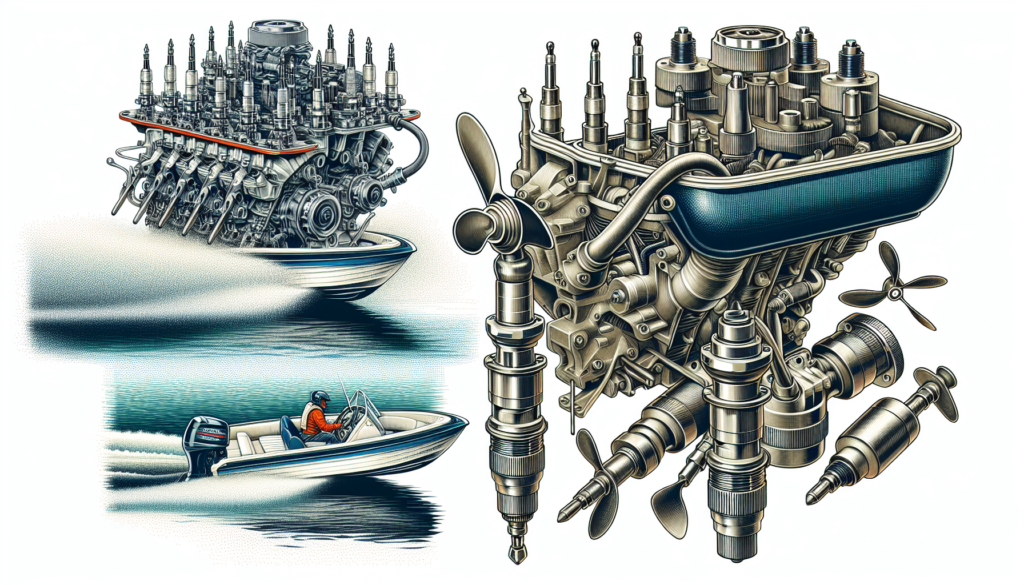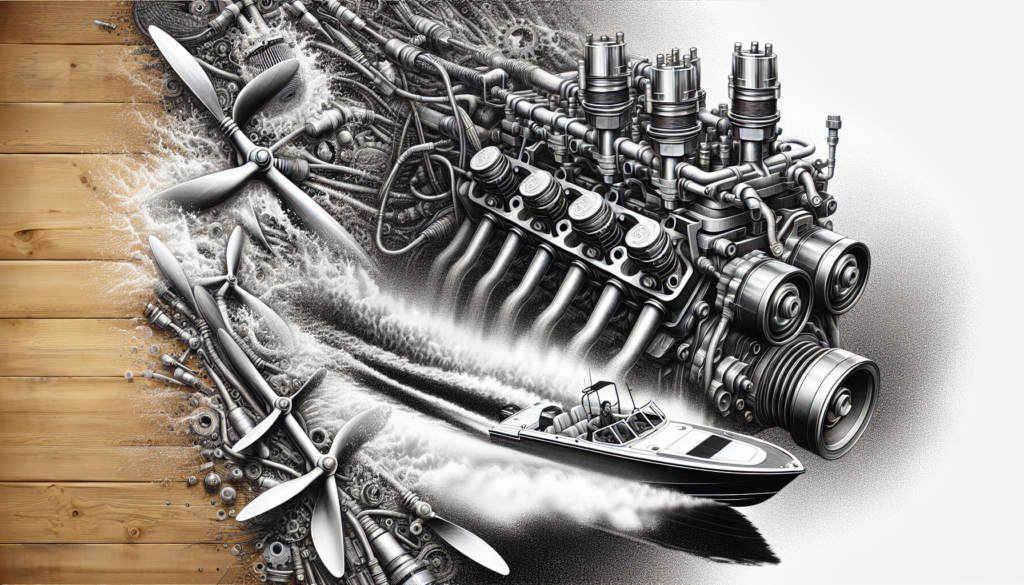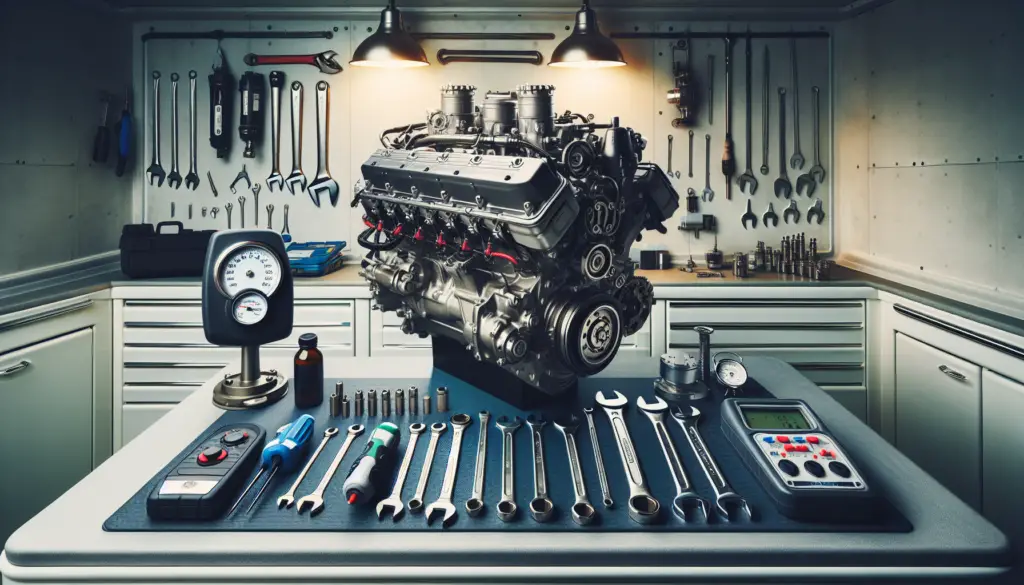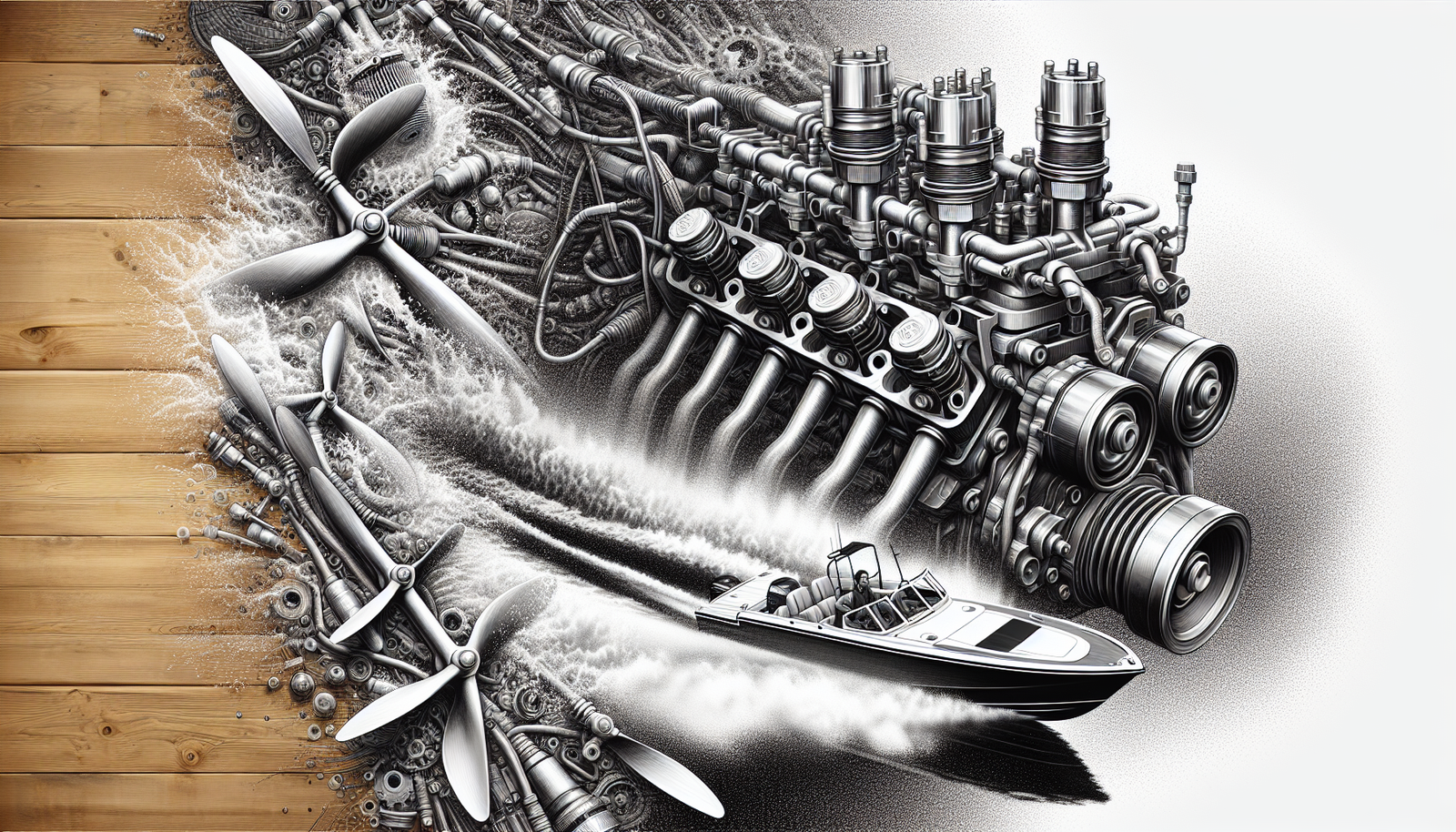Picture yourself sailing smoothly across the water, your boat engine purring with optimized power and fuel efficiency. Soon, you’ll learn the ins and outs of maximizing your boat engine’s performance, minimizing expensive fuel costs, and extending the life of your engine. “How To Optimize Your Boat Engine’s Power And Efficiency” is your go-to guide for revamping your boat’s engine to its highest potential. This article is going to equip you with key knowledge, from understanding the mechanics of your boat’s engine, implementing routine maintenance checks, to suggesting modifications for peak performance. Your high seas adventure just got a lot smoother.

Understanding Your Boat’s Engine Performance
Understanding how your boat’s engine works and what affects its performance is the first step in optimizing its power and efficiency. Engines are complex machines, with many parameters and mechanics affecting their overall performance.
Basic Mechanics of Boat Engines
At a fundamental level, boat engines work on the principles of internal combustion – they use fuel to create a controlled explosion inside a cylinder, which creates force to drive a piston. This force is then transferred to your boat’s transmission and on to the propeller, which propels your boat forward. This simple mechanism is the basis of how your boat moves, but there are many other aspects of the engine that affect its power and efficiency.
How Engines Generate Power
Engines generate power by way of the internal combustion process, but they also leverage other factors. The size of the engine’s cylinders, the amount of air and fuel they can draw, and the speed at which the engine can perform these cycles all contribute to how much power an engine can generate.
Key Engine Parameters that Affect Power and Efficiency
Various parameters affect the power and efficiency of your boat’s engine. These include things like the compression ratio, valve timing, and fuel-air mixture, as well as practical considerations like the engine’s age, temperature, and maintenance history.
Optimizing Fuel Consumption
Fuel consumption is a major aspect of your boat’s engine’s performance. Optimizing it can save you money and improve the overall efficiency of your boat operation.
Importance of Efficient Fuel Use
Efficient fuel use is not only important from a financial perspective, but it also affects the longevity and effectiveness of your boat’s engine. Over time, inefficiencies can lead to higher maintenance costs and a shorter engine lifespan.
Choosing the Right Fuel
The type of fuel you use can significantly affect your boat’s engine performance. Higher octane fuels often provide better performance but come with a higher price tag. Consulting your boat engine’s manufacturer’s recommendations is a good starting point when deciding on the type of fuel to use.
Adjusting Fuel-Air Mixture for Optimum Performance
Every engine’s optimum fuel-air mixture is different. Too much fuel can flood the engine, while too little can lead to a lean mixture that can cause damage. Understanding and adjusting for your engine’s specific needs can help achieve optimum performance.
Ensuring Regular Engine Maintenance
Regular maintenance is key to maintaining and improving your boat’s engine performance.
Importance of Regular Maintenance
Regular engine maintenance ensures that your engine remains in good working order, minimizes the chances of unexpected breakdowns, and helps you get the most out of your investment in your boat.
Common Maintenance Tasks
Common maintenance tasks include regularly changing the oil, replacing the air intake filter, checking and replacing spark plugs, and inspecting and maintaining the cooling system. Each of these tasks helps to ensure that your engine operates efficiently and reliably.
Identifying Signs of Engine Problems
Certain signs can indicate potential issues with your boat’s engine. These may include reduced engine power, increased fuel consumption, unusual noises, or excess smoke. Identifying and addressing these issues early can prevent more serious problems down the line.
Choosing the Right Propeller
Your boat’s propeller plays a significant role in its overall engine performance.
How Propellers Affect Engine Performance
The propeller translates the power generated by the engine to forward motion. If it’s too large or small, or if it’s pitched incorrectly, it can cause the engine to work harder than necessary, decreasing overall efficiency and potentially causing engine damage.
Selecting the Right Propeller Size and Pitch
The size and pitch of a propeller are critical factors that directly affect its efficiency and the speed at which your boat travels. Consulting your manufacturer’s guidelines and conducting hands-on testing can help you determine the best size and pitch for your boat, taking into account other factors like engine power and boat weight.
Benefits of Using High-Quality Propellers
High-quality propellers are made with durable materials that resist wear, reducing the risk of damage or breakage. They are also typically more efficient, maximizing the power transfer and reducing the engine’s work, leading to improved fuel economy and reduced engine wear.

Improving Exhaust System
Your engine’s exhaust system is another area where improvements can lead to better performance.
How the Exhaust System Affects Engine Performance
The exhaust system is responsible for venting combustion gases from your engine. If it’s not operating efficiently, these gases can back up and hamper engine operation, reducing power and efficiency.
Signs of an Inefficient Exhaust System
Common signs of an inefficient exhaust system include reduced engine power, unusual noises, excessive fuel consumption, and black smoke. If you notice any of these, it may be time to inspect and possibly upgrade your exhaust system.
Upgrading Your Exhaust System
making the right upgrades to your exhaust system can significantly affect your engine’s power and fuel economy. This might include installing a larger diameter exhaust pipe or adding a high-flow muffler.
Enhancing Engine Air Intake
The air intake system plays a crucial role in your boat’s engine performance.
Role of Air Intake in Engine Performance
Air intake allows the engine to consume air, which is vital for the combustion process. Without enough air, the engine cannot efficiently burn fuel, reducing its power and efficiency.
Designing an Efficient Air Intake System
An efficient air intake system ensures the engine can access the amount of air it needs quickly and efficiently. This often involves a combination of specialized parts and design considerations.
Benefits of a Clean Air Filter
The air filter is an often-overlooked component of the air intake system. Its job is to filter out particulates in the air and prevent them from reaching the engine. A clean air filter ensures that your engine has access to clean, uncontaminated air to maintain efficient combustion.

Upgrading to High-Performance Parts
Upgrading your boat’s engine with high-performance parts can significantly increase its power and efficiency.
Identifying Weak Engine Parts
Weak or damaged engine parts can negatively affect engine performance. Regular inspections can help you identify these potential points of failure and replace them before they cause more significant issues.
Benefits of High-Performance Parts
High-performance engine parts are typically made of high-quality materials and offer more efficient operation. This translates to increased engine power, improved fuel efficiency, and longer part lifespans.
Selecting the Right Parts for Your Engine
Choosing the right parts for your engine involves understanding your engine’s specific needs and challenges. This might require consulting with a marine mechanic or reading up on your engine’s specific make and model.
Effective Weight Distribution
Weight distribution also plays a role in your boat’s engine performance.
How Weight Affects Boat Speed and Fuel Efficiency
Too much weight can make your boat sluggish and decrease fuel efficiency. Conversely, insufficient weight can lead to unstable handling and increased fuel consumption.
Principles of Effective Weight Distribution
Effective weight distribution involves balancing weight so your boat maintains optimal stability and speed. This often involves moving weight around on the boat itself, or may require adjusting the load the boat is carrying.
Making Adjustments for Optimal Weight Distribution
Making adjustments for optimal weight distribution requires observation and testing. You will need to observe the boat’s handling and performance under a variety of conditions and loads, and adjust accordingly for optimum performance.

Implementing Proper Driving Techniques
Proper driving techniques can significantly affect your boat’s engine performance and longevity.
How Driving Technique Affects Engine Efficiency
How you operate your boat has a direct impact on engine efficiency. Sudden accelerations, for example, can place undue stress on the engine and burn more fuel than necessary.
Balancing Speed and Power
Knowing how to balance speed and power is key to efficient boat handling. This often involves understanding when to use higher engine speeds for speed and when to slow down to conserve fuel and reduce engine strain.
Proper Handling of Boat on Different Water Conditions
Different water conditions require different handling techniques. Understanding how to adjust your driving technique for these conditions can keep your boat stable, improve fuel efficiency, and ensure the safety of your passengers.
Power and Efficiency Considerations for Different Boat Types
The type of boat you have can significantly influence engine performance and efficiency strategies.
Optimizing Engine Power for Speed Boats
Speed boats benefit from higher horsepower engines and high-speed propellers. Careful weight distribution and streamlined design can also enhance speed and performance.
Maximizing Engine Efficiency for Fishing Boats
Fishing boats require different considerations. Since they typically stay in one place for extended periods, fuel efficiency becomes more critical than speed. Still, enough power is necessary to safely navigate back to shore.
Tailoring Engine Performance to Your Boat Type
Understanding specific engine performance considerations for your boat type can help you tailor your strategies appropriately. Consulting with marine mechanics or manufacturer guidelines can help further define these strategies.
Overall, understanding and optimizing your boat’s engine performance can save you money, prolong the life of your engine, and make your boat operation more enjoyable. With the right knowledge and strategies, you can maximize the power and efficiency of your boat’s engine.

